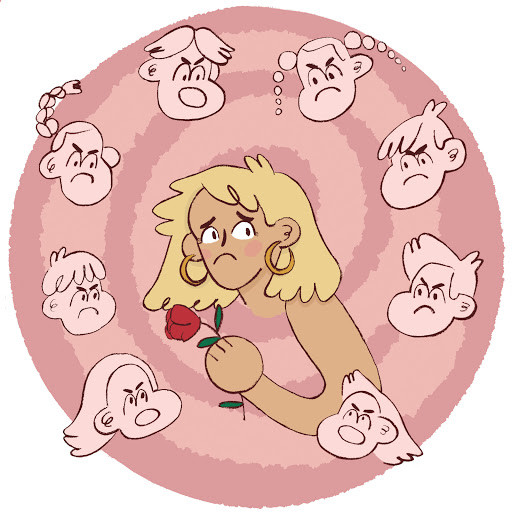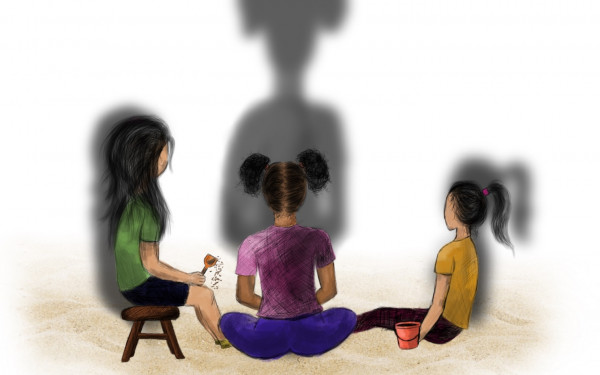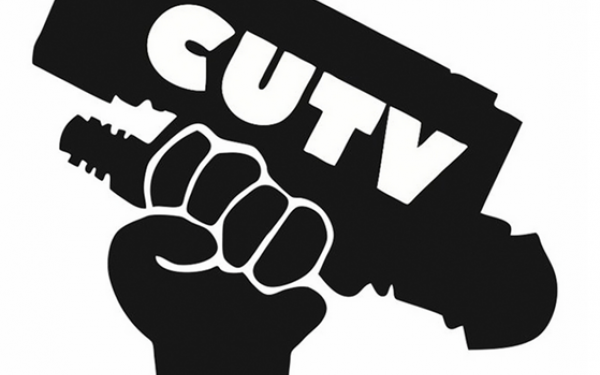The odd link between reality TV and the sex industry
How season 25 of The Bachelor led me to asking big questions about the destigmatization and decriminalization of sex work
I’ve always been a fan of reality TV, but for one reason or another, The Bachelor has never piqued my interest. I had gone a full 21 years of my life without ever watching an episode, until more recently when my parents and girlfriend collectively coerced me into allowing it to become our Monday night ritual.
A few episodes into this season of The Bachelor, the production company decided—for full dramatic effect—to introduce an additional set of characters onto the show. Tensions rose, there was a stark division between the ‘old’ and ‘new’ contestants, and the mean ones became meaner while the more understanding ones remained silent. This kind of ridiculously contrived trash (purposely introducing contestants midway through the series to create animosity) is all to be expected in reality TV, and largely contributes to my overall love for the genre. Soon enough, however, something came up in season 25 of The Bachelor that I found quite disappointing.
The ‘original’ female contenders had all sorts of nasty ways of welcoming the new women, including passive aggression, name-calling, and smug facial expressions. All the soapy and spicy wonders of late-night television. Yet, one contestant, in particular, went out of her way to try and be extra hurtful, starting a rumour about a newly-arrived woman. “I’ve been getting texts about [name] because she’s from my hometown, and people have been warning, saying ‘you better watch out for this girl,’” said a contestant named Anna. “Apparently [name] was always hanging out with rich men back home, and people have reason to believe that she used to be an escort.”
The rumour in and of itself was inappropriate, and that’s totally fine—gossip and the creation of scandals are essential reality TV show elements that I love to indulge in. What truly threw me off guard about the whole situation wasn’t the rumour itself, but the way in which the contestants, the host, and the production company were all unable to deal with it in a productive manner.
As the episode progressed, different characters grappled with issues regarding the scope of validity of the rumour, the malice that must have come with starting such a rumour, and the way that such a rumour could ruin the life of the contestant it centred around. Ultimately. the current bachelor eliminated Anna for creating such a scandal, but not a single individual present within The Bachelor’s cast and crew had the knowledge or courage to say what, in my opinion, needed to be said: that it would not matter if the rumour were true that this female contestant was a sex worker.
Allow me to clarify the root cause of my disappointment: any profession, including sex work, should not change one's outlook and opinion on a human being. Therefore, by beating around the bush with a focus on the nature of the gossip instead of proactively dismantling the preconceived elements associated with such a rumour, The Bachelor serves as a solid example of mainstream media that propagates an unhealthy, unproductive and stigmatized depiction of workers within the sex industry.
I know it's just stupid reality TV, but we must eliminate these kinds of depictions of sex workers within mainstream media in order to eventually pave the road for the complete decriminalization of sex work. We like to imagine a future of sexual liberation and open communication, but day by day we are hounded by negative depictions of sex workers; this starts as being reflected in forms of mass media like The Bachelor, but gradually seeps into our thoughts and conversations.
Popular media might sometimes spew blatant ideology, but for the most part its machinations are discrete, purposely operating under-the-radar, without the awareness of its consumers. The negative representation and perpetual stigmatization of the sex industry in various forms of media—including The Bachelor—pose as a ginormous yet subtle obstacle on the road to decriminalization, because many members of the general public still witness and internalize such casual dehumanization of sex workers.
A shift in the way mainstream engages in the discourse of sex work could educate the average person and therefore have positive socio-political effects: this includes a positive general reception of workers within the industry, but extends to important and imminent causes, such as proactive voting when it comes to how our leaders handle laws around sex work.
With sites popping up like OnlyFans, which gives a large portion of generated profit to its content creators and takes 20% of their earnings as a fee, sex work is becoming more accessible as its multitude of forms expands. Even with this progress, the criminalization of the sex industry leads to its workers being more vulnerable to abuses: Take, for example, the sex worker who is a victim of sexual abuse, but doesn’t don't feel comfortable reporting it to the police because of how law enforcement can be extremely dismissive and discriminatory towards them and their careers; the sex worker who is denied health care services simply because of their career path; the individual who loses their job because their previous history in sex work is uncovered. Even though a scandal in a reality TV show like The Bachelor might seem insignificant upon first glance, it actually plays a critical role in the media’s persisting stigma of sex workers and works as a small piece in the gigantic barrier which blocks the way to effective decriminalization of this industry.
The path to the decriminalization of sex work will be made easier when the power of mass media to dehumanize these sex workers is no longer undermined, as it has been for decades. It is of general public opinion that the decriminalization of all forms of sex work could and very well should be set in motion right away. And we need to hit the ground running—eliminating the popular media which dehumanizes workers within the sex industry could be the difference between a small leap and a major liftoff.
This article originally appeared in The Gender & Sexuality Issue, published March 10, 2021.





_600_375_90_s_c1.jpg)

_600_375_90_s_c1.jpg)